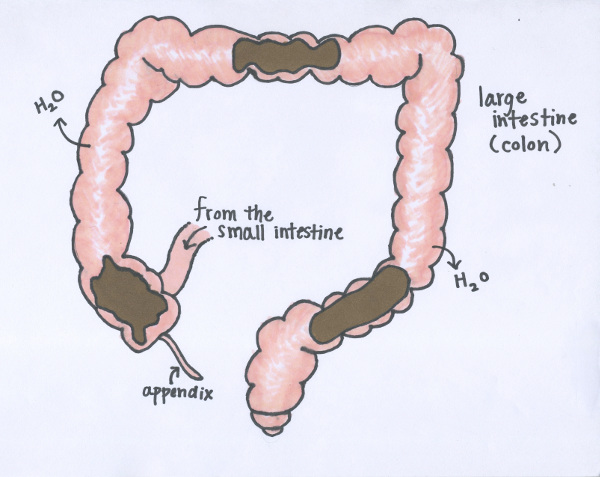HEALTHY & UNHEALTHY POOP, BOWELS & ELIMINATION

 Categories in PoopStoolStool ColorElimination / Bowel RoutineEven if you feel a bit squeamish talking about it, your poop tells a story about what is going on with you internally, and is the gateway to understanding your digestive health. Ready to learn more? Let's begin. What Does a Healthy Poop Look Like?A healthy stool is typically medium brown in color, well formed, and shaped like a banana. While this is the gold standard for poops, they will vary widely depending on diet, lifestyle, and your unique body type.An Ayurvedic practitioner assesses stools (mala pariksha) by color, shape, size, odor, consistency, and frequency. Each of these factors reveal integral information about your internal health. Practitioners will also encourage you to become actively involved in your own wellbeing, and to learn how to recognize a healthy poop. By doing so, you can interpret what your poop is trying to tell you on a daily basis. While digestive disruptions happen from time to time, consistently passing irregular or improperly formed stools can be a warning sign of more serious ailments in the future. In this way, Ayurveda uses poop, not only as a piece of the diagnostic puzzle, but as a way to anticipate and prevent future imbalances. How Your Body Forms Healthy PoopThe system that regulates the formation and elimination of feces is called purisha vaha srotas in Ayurveda.After food goes through the digestive process in the mouth, stomach and small intestines, and most nutrients have been absorbed, the remaining food waste enters the colon (pakvashaya). The colon separates all the parts of food the body can't utilize, and absorbs any remaining nutrients, particularly water. Once water is drawn out and absorbed in the colon, the remaining waste particles (mala) from the food become thicker and firmer and develop into a stool. The stool moves into the rectum for storage before peristaltic contractions stimulate its evacuation (apana vayu. At that point it is roughly 75 percent water, with the rest being bacteria, fiber, and anything else the body couldn't digest. At any stage of this process (from the initial digestion in the mouth to the storage of poop in the rectum) an imbalance can occur. The whole digestive tract must be in sync to create and pass healthy poop each day. What Causes a Poop Imbalance?Diet is the first, and most important, factor causing a poop imbalance."What goes in, must come out," as they say. What goes into your body and digestive system are the foods you personally choose to eat. What comes out, in the form of poop, is frequently a direct result of these dietary choices. For your poop to be healthy and well formed, your digestive health needs to be strong. Any of the following causes of poor digestive health (low agni) causes a wide range of poop imbalances.
Common Elimination and Bowel AilmentsWhile there are many ways your elimination and bowel health can become unbalanced, the following are some of the most common.Constipation & Its RemediesPassing roughly one to two bowel movements each day is considered normal, but this can fluctuate from person to person.Constipation occurs when the stools are passed infrequently (sometimes as little as once per week), often with great difficulty and even pain in some cases. Most commonly, constipation is a result of dryness in the body due to Vata dosha. The stools that eventually pass are dry, rough, hard and dark in color, resembling rabbit pellets. This type of constipation is often teamed with uncomfortable gas and bloating. Constipation can also occur due to lack of mobility in the colon (frequently associated with Kapha). A diet high in difficult to digest foods, like fried food and beans, can cause constipation. Ayurveda offers a number of remedies for constipation:
Diarrhea & Its RemediesLoose, liquid, or watery stools occur when the transit time of food through the bowels happens too quickly, before water can be properly absorbed.In some cases, diarrhea is a defense mechanism the body utilizes to expel harmful invaders such as bacteria from food contamination, intestinal infection, or parasites. Diarrhea can also occur if you are highly stressed, have weak digestion, are taking certain medications, or eating the wrong foods for your body type. Diarrhea is most often due to inflammation and irritation in the intestines. To reduce inflammation and diarrhea:
Undigested Food in StoolsWhen you start observing your stools, you might notice undigested food particles. Some usual suspects include sweet corn, and skins of certain nuts and seeds that are hard to digest. These are not a sign of imbalance.However, if you regularly eliminate stools with undigested food, it may be a symptom of weak digestive strength (low agni). In this case you may not be breaking down food, or getting enough nutrients from the food you are eating. Often this is a result of a dry digestive tract. When the digestive tract is dry, you lack digestive enzymes and food passes through your body without being adequately broken down. Eating food in a hurry, eating on the run, stress, and poor routine can lead to weak digestion. Instead, relax during meals and take time to chew your food. The first steps to improve digestion and reduce undigested food in your poop is to:
Poop & Elimination by DoshaYour constitution or dosha has a lot to say about imbalances in your colon. Understanding your dosha will help you recognize and prevent unhealthy poop.Vata DoshaAccording to Ayurveda, Vata types often experience dry, rough, hard stools that are dark in color and resemble rabbit pellets.To promote regular, well formed poop, Vatas should:
Pitta DoshaPittas are likely to pass food through the digestive system too quickly, and to produce looser stools that can be yellow in color.This yellow coloration occurs when bilirubin, the pigment found in bile, is inadequately digested by bacteria due to this faster transit time. When broken down properly, bilirubin gives poop its normal, cinnamon brown color. To encourage elimination of a healthy, well formed poop, balance Pitta digestion by following a Pitta pacifying diet. A Pitta's digestive tract can easily become irritated and inflamed, leading to poorly formed poop. Avipattikar churna, Guduchi, and Amalaki are good choices for reducing inflammation, especially in a sensitive digestive tract. Small doses can help bind the stools for those Pitta types experiencing looser movements. It is also one of the best rejuvenatives for Pittas and their intestines. Kapha DoshaKapha types are usually regular with their bowel movements, but they can be slow, sluggish and often contain mucus. Follow a Kapha pacifying diet to balance Kapha digestion and regulate bowel movements.Kaphas often need a little assistance with motility in the bowels. Ayurveda classifies bibhitaki as one of the best herbs to assist Kapha poops. Its drying and astringent nature dries excess mucus, but still has a mild laxative effect to help increase peristalsis and pass stools. Digestive Bitters help clear stagnation that may slow down poop production in Kapha types. Get to Know Your PoopFamiliarity with your poop is one of the most important daily habits to care for your body.Once you learn how to read your poop, it can answer many of the questions you have about your health. It can even show some possible warning signs for future imbalances, allowing you to work preventatively. To get used to analyzing your poop, keep a poop journal and note your findings for a few weeks. This alone may reveal something significant, or you can take this information to an Ayurvedic consultation for a full assessment. While there are a number of reasons the production of poop can become imbalanced, diet is usually the biggest culprit. The best ways to ensure you enjoy healthy and regular elimination is to:
Herbal Actions Affecting Poop
HOW AYURVEDA WORKSARE YOU WONDERING HOW AYURVEDA CAN HELP YOU?WHY IS AYURVEDA THE RIGHT SOLUTION?Ayurveda strengthens the body while opposing disorders. It takes a holistic, systemic approach that looks at the whole body. Ayurveda shows how to interpret signs and symptoms of imbalance, and how to address them using diet, lifestyle adjustments, and herbs. It shows a person how to optimize their health on a continual basis. You can't take the doctor home with you, but you can take Ayurveda home with you. Ayurveda is the most advanced and easy to use home system for self healing.HOW DOES AYURVEDA WORK?Ayurveda starts by identifying your body type, which identifies certain tendencies in your body to get sick (as well as identifying your strengths). It uses body type to determine the likely root causes of your disorders. Next, Ayurveda analyzes the nature of your disorder. It fits all your signs and symptoms into a pattern, expressed as a combination of biocharaceristics (gunas). For example, you may have a heat disorder, a cold disorder, or an oily disorder, etc. This simple categorical approach shows you how to correct systemic imbalances and strengthen your body as a whole.On Joyful Belly, we've created an extensive categorization of food so you can easily match food to your imbalanced biocharacteristics. By eating an optimal diet that balances your biocharacteristics, your whole body is strengthened and the conditions that created the disorder are removed. Once the root causes of the disease are removed, the disease lessens in strength or disappears altogether. Additional remedies - such as herbs and lifestyle practices - focused on the specific disorder, can greatly enhance your healing. GET STARTEDTo get started on your Ayurvedic journey, we first recommend that your find your body type by taking our free quiz. In Ayurveda, every solution is based on your unique body type, so by taking this quiz, you’ll get the best results. |
Join Joyful Belly.
Want our top Ayurvedic recipes and health tips?Subscribe to our free newsletter!






